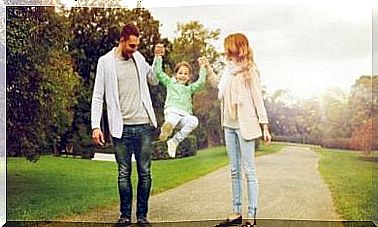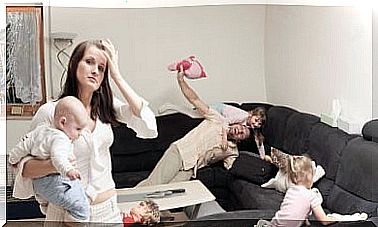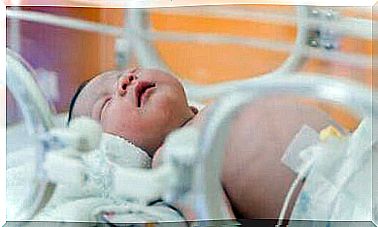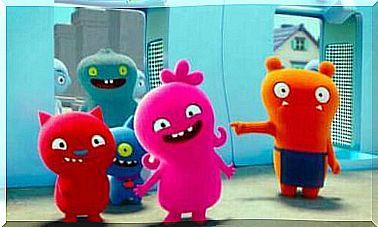5 Emotional Wounds From Childhood That You Take With You Into Adulthood
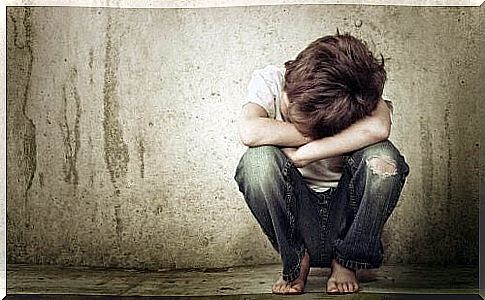
There are certain circumstances and situations that create emotional wounds during childhood. Some of these wounds have the power to accompany one into adulthood. The consequences can vary in severity, depending on what has happened.
Most people forget the majority of things they experienced during childhood, such as the first day of school or the first time they cycled.
But it is harder to forget the times when you were humiliated or fell victim to some form of injustice. These emotional wounds tend to significantly affect a person’s psychosocial development right into adulthood. And they can give rise to fears, lack of confidence and other problems for the rest of a person’s life.
They can also prevent one from having healthy relationships as well as positive social interactions more generally.
The emotional wounds that occur during childhood do not have to be permanent. Fortunately, many of them have a solution and can heal with the help of a therapist or psychologist. Support from loved ones is also important.
To overcome emotional wounds from childhood, one must first be made aware of them. If someone hides their pain or avoids facing it, for fear of being further injured, it is impossible to heal.
5 common emotional wounds from childhood
Fear of being abandoned
Almost all people experience a fear of being abandoned in some form. Not only by their partners and friends, but also by family members, pets or even people with whom they do not have a particularly strong bond.
People with this fear also often have to deal with the fear of being rejected. Therefore, they build walls so as not to let others get too close. They are afraid that others may harm them in one way or another.
This fear usually appears in individuals who have actually been abandoned and abandoned during childhood. It may have been unintentional or not. The resulting emotional wound is not easy to heal, and to do so requires daring to look inward. A person who lives afraid of being abandoned must embark on a journey to learn to trust others.
Fear of being rejected
Just like the fear of being abandoned, the fear of being rejected and rejected is one of the deepest emotional wounds that can befall people. It is not just about being rejected by others, but also that you reject yourself.
This fear can be the result of various situations, such as rejection from one’s parents, family, friends or siblings. This causes the child to develop negative thoughts that are associated with being rejected. They feel unloved and it erodes their self-esteem.
People with this fear often feel that they do not deserve love and understanding. These feelings drive them to isolate themselves from those around them. To solve the problem, they must begin to make decisions on their own without worrying about what others will think or feel.

Fear of humiliation
Emotional wounds that are rooted in humiliation often affect people who experienced a lot of criticism and not much recognition from strict parents during childhood. This is especially true of those who were accused of being clumsy, mean, immature, annoying, etc. This destroys a child’s self-esteem.
As a result, you develop a personality that is dependent on what others say and think. It also creates a protective shield to protect itself from threats that have not yet emerged.
To overcome this fear, it is important to work with your independence, freedom and self-awareness.
Fear of being betrayed
The fear of being betrayed is another common emotional wound from childhood. In general, fear arises among children whose parents betrayed them by not keeping their promises.
The parents then create a situation that gives rise to great mistrust, jealousy and unhealthy relationships.

Being betrayed during childhood often causes individuals to develop controlling personalities. While these people are aware of their shortcomings and problems, they do not seem to have any intention at all of wanting to change.
To achieve change, these individuals must work with, for example:
- Patience.
- Tolerance.
- Meditation.
- Understand and tolerate their and others’ mistakes.
- Learn to delegate responsibilities.
Fear of injustice
The fear of being treated unfairly is often the result of parents being cold and authoritative. This upbringing style is distinguished by raising children with extreme demands and little room to make mistakes. This leads to the children feeling worthless and incompetent.
